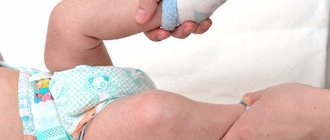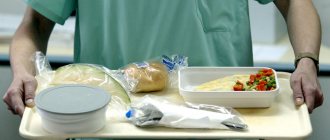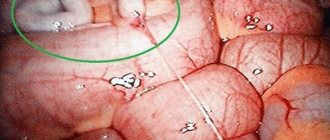Atony after surgery
Intestinal atony, that is, a decrease in smooth muscle tone, can occur due to the administration of anesthesia. During anesthesia, all muscles of the body, including the intestines, relax. After the operation, the substances may still affect the body for some time, so the patient experiences constipation for several days.
With a decrease in peristalsis, the food bolus moves worse from the upper to the lower parts of the intestine. With atony, there is a decrease in wave-like movements of the intestinal walls. Insufficient contraction causes fecal stagnation. Losing water, feces harden, damaging the mucous membranes.
After what operations is it necessary to adjust the stool?
Constipation after surgery is a common phenomenon experienced by people who have undergone surgery on the gastrointestinal tract and neighboring organs: intestines, appendix, gallbladder, pancreas.
Constipation after surgery is a common phenomenon experienced by people who have undergone surgery on the gastrointestinal tract and neighboring organs: intestines, appendix, gallbladder, pancreas
The following surgical interventions and the phenomena that accompany them can lead to constipation:
- surgery to remove the uterus;
- abdominal type of operation;
- surgical interventions on the rectum, large and small intestines;
- operations to remove nodes formed as a result of hemorrhoids, removal of fistulas after hemorrhoids have been cured;
- During laparoscopy, constipation may occur due to the administration of narcotic drugs to euthanize a person;
- during gastric resection, constipation may also occur in the postoperative period;
- constipation can also occur after surgery necessary for appendicitis;
- Constipation may also occur after pancreatic and gallbladder surgery.
The main reason for constipation after surgery is anesthesia, which is necessary to relieve pain and put the person to sleep at the time of surgery. Narcotics and painkillers reduce the tone of the abdominal muscles, including the intestines. Problems with stool begin in the first few days after surgery and, if you maintain a normal lifestyle and follow all the recommendations prescribed by the doctor, they disappear after a week.
Constipation symptoms
With constipation, the patient needs to defecate but cannot go to the toilet. Constipation after surgery is accompanied by the following symptoms:
- The patient feels fullness of the intestines, heaviness in the abdomen.
- Appetite and sleep are upset.
- Signs of intoxication appear: vomiting and nausea occur due to accumulated toxins.
- Mood worsens.
- Appetite decreases.
Hardened feces can cause not only injury to the mucous membranes, but also internal bleeding. It is possible that anal fissures may appear, through which infections can easily enter the body.
Muscle tone after anesthesia is restored over time. During the recovery stage of the body, it is important to avoid prolonged constipation.
Consequences of postoperative constipation
If you do not quickly adjust your stool after surgery, the consequences of prolonged constipation can have a bad effect on the patient’s well-being.
To avoid constipation, you should eat as recommended by your doctor.
This is expressed in the following symptoms:
- severity of healing of postoperative sutures;
- the development of stagnant processes that lead to intestinal injuries is possible;
- the body will be saturated with toxins that enter the blood from feces through the intestinal walls;
- ruptures of an established colostomy are possible if intestinal surgery was performed.
These consequences of constipation are a frequent reason for repeated operations, as well as the use of a large number of medications, which can further weaken the body, but are a necessary measure to save the patient’s life. Therefore, it is important to get rid of constipation as soon as possible, or better yet, start preventing it altogether from the first hours after surgery.
Therapeutic measures for constipation
Strong laxatives for constipation should not be used frequently, as the body quickly gets used to the excipients, and under the influence of medications the intestines cope with their functions worse. It should be remembered that the purpose of a laxative is to alleviate the patient’s suffering by making bowel movements possible. Laxatives do not treat the cause of constipation, but help cleanse the body and restore natural microflora.
Irritant laxative
Fast-acting drugs have the greatest effect for constipation caused by sluggish peristalsis. Not intended for long-term use. The drug is taken in the evening so that stool appears in the morning. Thinning medications are contraindicated for anal fissures, uterine bleeding, and hemorrhoids during exacerbation. Drugs in this group include:
The drugs are available in the form of tablets, syrups, suppositories, and drops.
Prebiotics
Prebiotics are delayed-acting drugs. The main task of prebiotics is to restore normal intestinal microflora. Drugs in this group are safe for nursing mothers and children. A mild laxative does not act instantly, but, unlike irritating drugs, prebiotics can be used for a long time. The main thing is to follow the instructions. Prebiotics include Duphalac, Goodluck, and Exportal.
Osmotic laxatives
To restore normal bowel function, you can take laxatives that do not cause lazy bowel syndrome. Fast-acting drugs are good when urgent bowel cleansing is required. Osmotic laxatives can be used for a long period of time - up to three months. Salt preparations protect feces from dehydration. By retaining water, medications in this group prevent hardening of the food bolus. The drugs of the group include Mucofalk, Osmogol, Lavacol, Microlax enema.
Enteric fillers
Preparations of natural and herbal origin increase fecal mass, accelerating bowel movements due to the occurrence of a reflex function. Medications are not used for irritable bowel syndrome; if you have a sluggish bowel, intestinal fillers may not have the desired effect. Among the drugs in the group, the most famous are Agar-agar, wheat bran, flaxseed, etc.
Herbal laxatives
To improve intestinal function, they resort to laxatives, dietary supplements, and combination drugs. Herbal remedies include Kafiol, preparations from rhubarb, buckthorn, senna leaves, steel grass roots, kelp, plantain seeds, etc.
Causes of constipation
Why does constipation occur after gallbladder removal? This organ is involved in almost all stages of the food digestion process.
Bile enters the intestines, where it accelerates the absorption of nutrients. Indications for cholecystectomy are: inflammatory processes, the presence of stones and malignant tumors. Improving bowel function after surgery is facilitated by following a special diet and taking medications prescribed by a doctor. The accumulation of bile in the body prevents the rejection of fatty, fried and heavy foods. It is recommended to eat 5-6 times a day in small portions. On the first day after surgery, you should not eat or drink water; the next day you are allowed to consume rosehip decoction, dried fruit compote, low-fat kefir and weak tea. On the 4th day you are allowed to take liquid or semi-liquid food - mashed potatoes, boiled pureed fish, vegetable soups. This nutritional principle will have to be followed for 8 weeks. Spicy, fried and smoked foods should be excluded from your diet forever. The range of prohibited foods is quite wide; following a strict diet allows you to avoid changes in intestinal acidity.
Constipation after surgery to remove the uterus can be caused by the development of adhesions. In the early postoperative period, it is also recommended to avoid eating rough and heavy foods. You are allowed to eat porridge, kefir, vegetable salads and soups. It is better to avoid cabbage and legumes. The sooner a woman returns to an active lifestyle, the lower the risk of adhesions and constipation. If necessary, the doctor prescribes mild herbal laxatives.
Laparoscopy is a low-traumatic surgical intervention in which access to organs is provided by performing small punctures. The risk of developing serious complications is low, but constipation does occur after such an operation. In the first days after the intervention, you should avoid any physical activity, visiting the bathhouse or sauna, or taking a hot bath. Proper nutrition and relaxing procedures help quickly get rid of constipation. After laparoscopy, the patient must carefully monitor his health, take care of the suture and change the dressings in a timely manner.
Constipation after removal of hemorrhoids is largely due to the patient's fear and the presence of pain. With the long-term presence of this condition, the rectum ceases to function normally, so it is necessary to begin to deal with the problem before the sutures heal.
Any surgical intervention requires anesthesia. Both general and local anesthesia have their own side effects. Even an experienced anesthesiologist cannot predict what consequences general anesthesia may have. Constipation occurs due to decreased tone of the intestinal walls, abdominal and pelvic muscles. Painkillers negatively affect the functions of the liver, kidneys and gallbladder. Their incorrect operation can lead to deterioration of intestinal motility.
The faster the body gets rid of toxic substances, the easier the early postoperative period will be. It is necessary to observe a special drinking regime and eat properly. The restoration of intestinal microflora is facilitated by the intake of prebiotics. Getting rid of constipation caused by anesthesia is quite simple. At first, you can adjust your stool using oil microenemas, which have a quick effect.
Massage for constipation
If you have problems with bowel movements, hardware or manual massage may be prescribed. To improve peristalsis, you can master the technique of self-massage. Massage movements are performed in a horizontal position. When lying down, maximum relaxation of the abdominal cavity is achieved.
Sessions are held for 10 minutes twice a day: 30 minutes after breakfast and 1.5 hours after lunch. Begin the massage by stroking the right iliac region, gradually moving to the left side. Stroking is replaced by circular rubbing movements with light pressure.
Immediately after waking up, you can perform acupressure. Feces stagnate in the area just below and to the left of the navel. Sometimes the patient feels a hard body in this place. The massage is carried out with three fingers. It is necessary to perform circular movements clockwise for 2-3 minutes. Several such self-massage sessions are necessary throughout the day.
How to adjust your stool after surgery, what to do
- Exercise and warm-up. Exercise cycling and walking, pulling in the abdomen to tighten the abdominal muscles. They help restore muscle tone that was reduced by medications administered during surgery.
- Drink a glass of clean water every morning twenty minutes before breakfast. Helps to start the work of the stomach and intestines, which were stopped during sleep, the production of enzymes begins, which will improve and speed up the digestion process.
- Taking probiotics and prebiotics (Bio Guy, Bifiform, Hilak Forte). These medications help populate the intestines with beneficial bacteria, which will improve the digestion process and the movement of feces through the intestines.
- Drink 1.5-2 liters of clean water per day. Water helps soften the stool, making it easier for it to move through the intestines and leave the body naturally without damaging the integrity of the mucous membranes. Water helps soften the stool, making it easier for it to move through the intestines and leave the body naturally without damaging the integrity of the mucous membranes.
- Massage the abdomen strictly clockwise with light, smooth movements with your hands . You can sometimes press lightly with three fingers on the left just below the navel. Helps to activate intestinal activity, promotes mechanical softening of feces, which facilitates the process of excretion of feces.
- Diet. Consumption of light porridges (except rice), fermented milk products, compote juices, honey and jam, as well as fresh vegetables and fruits in small doses. But you should avoid eating astringent and strengthening products; this includes pears, pomegranates, fatty meat and fish, and broths based on such products. Products rich in fiber, as well as bifido- and lactobacteria, help the intestines in the process of moving feces, and also facilitate the process of forming a fecal bolus, making it softer.
Exercises for constipation
To improve intestinal motility, you can perform daily exercises. It is useful to walk a lot and do light jogging if your doctor allows it. Intense physical activity is prohibited during the healing period of sutures.
- Lie down on a hard surface. Raise your legs, throw them behind your head. Repeat 25–20 times.
- While sitting on your knees, exhale and sharply draw in your abdominal muscles. Relax as you inhale.
- Perform a simple “bicycle” exercise - circular movements with your legs, as if you were pedaling.
It is worth remembering that physical activity and massage may be contraindicated after certain types of abdominal surgery. All actions must be agreed with your doctor.
Treatment and recommendations
If constipation is left untreated, it can cause significant discomfort and lead to complications. This is especially common after operations.
However, it is important to remember that before using any therapeutic strategies to relieve constipation, you should check with your doctor, as some treatments may not be safe for people who have recently undergone a surgical procedure.
The recommendations below are related to the mild impact on the body of patients who have recently undergone surgery. However, they should only be used with a doctor's permission.
Nutrition for constipation
To improve the passage of feces, the patient should drink 2–3 liters of liquid, preferably purified or still mineral water.
Beetroot dishes, vegetable oil, prunes, dried apricots, and compotes have a laxative effect. Meals must be organized in fractional ways, 5-6 meals a day in small portions. For constipation, the body requires foods containing fiber, bran bread, whole grain porridge and oatmeal, honey, jam, natural juices, and fermented milk products. Vegetables that cause gas formation, such as legumes, cabbage, eggplant, and radish, should be avoided. It is necessary to exclude foods with a fixing effect: semolina and rice porridge, astringent fruits (pears, pomegranate), rich broths from meat and fish.
This article was co-authored by Jonas DeMuro, MD. Dr. DeMuro is a board-certified pediatric emergency surgeon based in New York City. He graduated from Stony Brook University School of Medicine in 1996.
Number of sources used in this article: 18. You will find a list of them at the bottom of the page.
If you are having surgery, be aware that constipation is common after surgery. Many painkillers (especially opioid analgesics) and the anesthesia used during surgery slow down the gastrointestinal tract and may therefore cause constipation. [1] In addition, constipation can occur after surgery on the stomach or intestines, as well as due to following a special diet. There are many ways to relieve constipation after surgery. These may include changes in lifestyle, diet, or taking appropriate medications.
The main key to successful recovery after surgery on the digestive organs is diet. A properly selected diet contributes to the speedy restoration of digestion and accelerates tissue regeneration by reducing the load on the intestines. The diet relieves the painful symptoms of flatulence and pain along the intestines, normalizes stool and peristalsis.
What are the dangers of constipation after surgery?
Stool retention often leads to serious consequences in the postoperative period. One of the complications of postoperative constipation is developing intoxication. It interferes with normal post-operative recovery, weakens the body's defenses and significantly worsens well-being. Constipation is a real obstacle to full rehabilitation and the reason for increased hospital stay.
It is important to understand that constipation is not always characterized by a complete absence of bowel movements. Intestinal dysfunction is already indicated when there is dense, fragmented feces in a small volume. In this case, there is a possibility of complications developing in the form of injury to the mucous membranes of the rectum, the appearance of anal fissures, and exacerbation of hemorrhoids.
Even slight bleeding from the anorectal area can worsen the situation in the context of recent blood loss. Therefore, constipation after surgery will worsen anemia or provoke its development.
Anemia, in turn, is characterized by symptoms such as dizziness and weakness. In recovery, these symptoms may force a person to stay in bed longer than necessary.
Constipation in adults after surgery is often complicated by increased pain. This is especially true for abdominal surgery: previous interventions in the abdominal cavity are accompanied by pain and the use of analgesics. The development of constipation and its accompanying symptoms - a feeling of heaviness, bloating - aggravates the problem.
In some cases, constipation forces you to take analgesics and antispasmodics for a long time, and therefore a vicious circle develops: the drugs affect intestinal motility, the problem with intestinal function increases, pain occurs, which forces you to take painkillers again.
Constipation often causes loss of appetite, which is associated with abdominal pain, nausea from intoxication and poor health. And the nature of nutrition largely determines the speed of recovery after such stress as surgery. Refusal even from permitted food can cause the development of conditions associated with a lack of vitamins, microelements, and important acids.
One of the most dangerous complications of constipation is colonic diverticulosis. It is a protrusion of the intestinal walls due to their overstretching.
And finally, postoperative constipation sometimes forces a person to take laxatives or do cleansing enemas daily. If the situation drags on, you may experience a lack of natural bowel movements as a result of taking laxatives and constant “help” of the intestines through enemas.
This applies to drugs belonging to the group of stimulant laxatives. The development of addiction consists in the formation of lazy bowel syndrome. The problem will require a long and complex correction, so you should not take medications uncontrollably under any circumstances.
General features of the postoperative diet
The menu is selected by the patient himself, the doctor only advises and recommends certain food products for consumption. The diet should be followed both in the hospital and after discharge for 1-2 months until peristalsis is completely restored. It is necessary to return to your usual diet gradually, without sudden transitions.
Basic principles of postoperative diet:
- Hunger during the first and second days after surgery. Parenteral nutrition (intravenous administration of glucose and protein solutions).
- Extremely gentle food for 1-2 weeks after surgery, when the patient is still in the hospital: porridge, pureed soups, pureed vegetable and fruit purees, compotes, fruit drinks and teas.
- After discharge from the hospital, prepare food yourself by steaming or boiling it in salted water, followed by grinding it into a paste-like consistency.
- Compliance with the diet for another 1 month after discharge.
- Exclusion of fatty, salty, smoked, fried and irritating foods, as well as spicy, hot, bitter and sour.
- Avoiding sweet foods and foods that cause increased gas formation and bloating.
- Eating at the same time of day.
- At least 5-6 meals per day.
- All dishes are served warm.
Diet food
All therapeutic measures for problems with defecation after surgery for hemorrhoids must be carried out in compliance with a special diet.
The goal of proper nutrition is to achieve soft stool that will not injure the operated area.
Principles and features of the diet:
- drink at least 2 liters of water per day;
- include cereals and products of plant origin in the diet;
- meals should be fractional;
- you should drink more low-fat broths or soups;
- solid foods must be excluded;
- Fried, smoked, spicy foods and dishes are prohibited.
For constipation, it is recommended to eat exclusively boiled or steamed food. Sometimes you can diversify your diet with baked dishes.
Patients suffering from regular constipation should avoid foods that cause gas. These include legumes, carbonated drinks, cabbage. It is also prohibited to consume baked goods, sweets and fresh bread.
In the evening before going to bed, it is useful to drink a glass of yogurt, and in the morning eat a portion of oatmeal with fruit. Consuming these products for three days according to the proposed scheme will facilitate the process of bowel movements.
We should not forget about the temperature of prepared dishes. Patients with constipation should eat prepared foods whose temperature ranges from 15 to 65 C.
What foods can you eat after surgery?
Products that do not irritate the intestines, are easily digestible and digestible are recommended for consumption. It is better if they undergo heat treatment before use.
After surgery, the following are allowed for use:
- Boiled cereals and grain products.
- Boiled vegetables in the form of puree.
- Boiled and baked fruits in the form of puree.
- Fermented milk products.
- Meat broths without adding spices.
- Meat purees (at 1-2 weeks), then pieces of lean meat.
- Dried black bread and crackers.
- Berry jellies, jelly.
- Boiled and soft-boiled eggs.
- Mineral water.
- Vegetable juice.
- Black or green tea.
- Fruit drinks, compotes, decoctions.
Prospects
Many people experience constipation after surgery. Causes of this problem include pain medications, anesthesia, or lack of mobility.
The outlook for patients experiencing postoperative constipation is generally good. Most see improvements within a few days of starting therapy.
It is necessary to coordinate with your doctor the use of any medications for the treatment of constipation, especially after surgery and in cases where a person is taking other pharmacological products.
What foods should you not eat after surgery?
Irritating (spicy, bitter, sour, sweet) and hot foods should not be eaten after surgery. Products that cause increased gas formation and fermentation, as well as difficult to digest foods, are excluded from the diet.
After surgery, the following are prohibited for use:
- Sour fruits and berries.
- Preparations for the winter - pickles, smoked meats, marinades.
- Canned food.
- Sweets – candies, cookies, chocolate, etc.
- Mushrooms.
- White and fresh bread, baked goods.
- Nuts.
- Cold drinks.
- Legumes.
- Alcohol.
Important! It is recommended to avoid these foods for at least three weeks after surgery. It is advisable to maintain such a diet for 2 months.
Postoperative problems with bowel movement and ways to solve them
If constipation occurs after removal of appendicitis, hernia, hemorrhoids or other surgery, measures should be taken immediately to eliminate it in order to avoid the development of complications. Stool retention can be a consequence of postoperative trauma, but more often occurs due to the harmful effects of general anesthesia. Anesthesia causes weakening of all muscles of the body, of which the intestinal muscles are no exception. In order for muscle tone to be restored, you need to wait a certain time. It is during this period that disturbances in intestinal motility and, as a result, constipation appear.
To prevent the development of this process, it is important to follow some postoperative rules:
- drink a glass of cold water on an empty stomach;
- for some time after surgery (removal of a hernia, appendicitis or other type of operation), take laxatives. Most often, Duphalac or Normaze (lactulose) are prescribed; they are absolutely safe and are not absorbed into the blood;
- It is very important to enrich the intestinal flora with beneficial bacteria. In this case, various probiotics are prescribed that restore the necessary balance of microflora (Hilak Forte, Simbiter, Bio Gaia, etc.);
- Following a special diet is the key to successful bowel function. In the morning, it is good to eat oatmeal or whole grain porridge cooked in water. During the day, they eat a lot of fermented milk products, fresh vegetables (which do not cause flatulence), bread with bran, small pieces of boiled meat or lean fish. It is forbidden to eat vegetables and fruits that cause increased gas formation, strong tea, coffee, and carbonated sweet drinks.
By following these recommendations for preventing the development of constipation after removal of a hernia, appendicitis, hemorrhoids or intestinal intervention, the patient will be able to avoid the development of this pathological process.
See also: Consequences after rectal surgery
ogemorroe.ru
Features of the diet after intestinal surgery for cancer patients
Nutrition alone cannot defeat cancer. The diet is prescribed after surgery, when part of the intestine has already been removed. The menu is selected in such a way as to normalize the patient's stool, while the energy value of the dishes must fully satisfy the needs of the patients.
The menu includes large quantities of fruits and vegetables, broths, and cereal porridges. Meat consumption is limited (no more than 100 g per day of lean meat). The main source of protein is seafood, which is digested more quickly and contains a lot of microelements.
Food is served warm. Every day they monitor the nature of the stool and the amount of liquid drunk (at least 2-2.5 liters per day).
What should you eat and drink before and after surgery?
Food and fluids consumed before and after surgery can have a significant impact on the prevention and treatment of postoperative constipation.
Below are tips to help people maintain regular bowel movements. Still, it is better to discuss the possibility of using these and other preventive measures with your doctor.
Drink significant amounts of liquids
If you are dehydrated, avoid drinking drinks containing caffeine.
Dehydration can cause constipation. To maintain hydration, people should drink water regularly throughout the day. Diluted fruit juices, especially plum juice, can also help.
It is also helpful to avoid drinks that contain caffeine, such as coffee and cola. These products can make dehydration worse.
Consume foods rich in fiber
Fiber helps stool pass through the digestive tract.
Adults who consume about 2 thousand calories daily need to eat at least 25 grams of fiber every day.
Foods rich in fiber include the following:
- fruits;
- vegetables;
- whole grains;
- nuts and grains;
- beans and lentils.
If after surgery a person does not have a good appetite, then to provide the body with the necessary amount of fiber, he can drink cocktails containing fruits and vegetables.
It should be emphasized that people who begin to consume fiber more actively also need to increase the volume of fluid they take.
Avoid some foods
Certain foods are more likely to cause constipation. If this problem occurs, you should limit or completely stop consuming the following foods:
- dairy products;
- processed food;
- refined grains, such as white bread, white rice, or white pasta.
Snack regularly
Eating food can stimulate intestinal motility. Therefore, doctors recommend eating small and frequent meals to relieve constipation.
Diet after surgery for intestinal adhesions
Adhesive obstruction is a very common disease of the digestive tract. After surgery for intestinal adhesions, the patient must follow a special diet.
The menu includes exclusively mushy and puree-like foods. All products are grated and ground in a blender to puree. It is not recommended to eat rough food for 1-2 weeks after surgery.
At this time, you need to drink a lot of liquid: teas, rosehip or herbal decoctions, compotes, fruit drinks. The menu includes jelly and berry jellies as dessert. During the diet, stool passage is also monitored. There should be at least 6-8 meals in small portions per day.
Effect on the body
Problems with bowel movements affect the general condition of the body. Constipation has a detrimental effect on human health.
Effect of constipation on the body:
- there is a violation of the metabolic process;
- the development of an inflammatory process in the rectum and sigmoid colon is possible;
- the illness is accompanied by a lack of appetite;
- constant feeling of fullness in the abdomen and intestines;
- sleep is disturbed;
- toxic substances penetrate the blood, poisoning the body, resulting in causeless nausea or even vomiting;
- weakening of the motor activity of the initial part of the large intestine causes the appearance of symptoms of partial return of masses to the small intestine with the development of enteritis.
The performance of the operated patient decreases sharply. The victim constantly feels a loss of strength.
Also, as a result of regular constipation, the large intestine expands or lengthens, which further aggravates the movement of feces towards exit from the body.
After surgery to remove hemorrhoids, constipation can lead to the development of a tumor process, this is due to the limited intake of fiber from food.
You should know that hard feces injure the intestines, which leads to bleeding, the formation of new cracks and hemorrhoids.
Features of the diet after surgery for intestinal obstruction
If there is an intestinal obstruction, a large portion of the small intestine is removed. This is dangerous by the development of malabsorption syndrome with subsequent transition to asthenic syndrome. Therefore, such patients must follow the diet for life.
The menu includes easily digestible foods; difficult to digest foods are excluded, since they do not have time to be digested by the intestines. Vegetables, broths and soups, cereals and purees are allowed in large quantities. The patient needs to independently monitor the condition of the stool and the characteristics of the body’s reaction to certain foods, since the digestibility of food varies from person to person.
Herbal laxatives
Laxatives of plant origin, entering the intestines, swell and stretch the walls of the organ. At the same time, the wave-like movement of the intestines increases, resulting in an act of defecation. The preparations contain natural substances that are not digested in the stomach, but absorb liquid in the intestines.
- "Fitolax". The composition includes senna, apricot, plantain, dill.
- "Senade". The drug is contraindicated for inflammatory diseases of the abdominal cavity, gastric or intestinal bleeding and intestinal obstruction.
Diet after intestinal stoma surgery
A stoma is the removal of the blind end of the intestine to the anterior surface of the abdominal wall. This is necessary in the first months after surgery for intestinal cancer or intestinal obstruction. In a word, any operation for bowel resection, as a rule, ends with the imposition of a stoma.
This is a temporary measure, however, the stoma causes a lot of inconvenience to the patient. You can learn to live with an open intestinal stoma if you follow the basic principles of nutrition.
The menu is mainly aimed at facilitating the act of defecation, while the patient should not have loose or overly hard stools. The patient is recommended to keep a food diary, where he writes down everything he ate the day before and the digestive reaction to the food eaten. Indicate symptoms (flatulence, pain, cramps), the nature of the stool (liquid, hard, mushy) and the amount of food eaten.
Important! Nutrition for intestinal stoma includes a variety of vegetables, fruits, soups, dairy products, and meat. By keeping a food diary, the patient himself adjusts the diet, depending on the body’s response to the dish. For constipation, the menu includes beets, prunes, and plums. For diarrhea - grain porridge.
Causes and treatment of constipation
One of the classifications of constipation is based on a causative factor. Based on it, the following types of pathology that develop in an adult are distinguished:
- Alimentary constipation is caused by the fact that an insufficient amount of fiber enters the human body with food. In most patients this factor turns out to be the leading one. It is treated without the use of medications. It is enough for the patient to adjust the diet and stick to it in the future;
- The hypokinetic form occurs in people with low physical activity. The most correct treatment for this type of constipation, which gives quick positive results, is to change your lifestyle. Patients with this type of pathology just need to get into the habit of doing gymnastics every morning, taking long walks and playing some kind of sport;
- With reflex constipation, the cause of long-term stool retention in both an adult and a child is diseases of different parts of the gastrointestinal tract, and in some cases, other organs. Treatment of this form of pathology is prescribed by a specialist based on the results of a diagnostic study and can be either medicinal or surgical;
- For people working in hazardous industries, such a serious problem arises due to the fact that their bodies are subject to constant chemical intoxication. Treatment of constipation in this case should be prescribed by a specialist and carried out under his supervision;
- The mechanical form of chronic stool retention in adults occurs due to the appearance of obstructions in the large intestine. These may be polyps, tumors or scars. In any of these cases, a person is prescribed surgical treatment for constipation, aimed at eliminating formations that interfere with the free passage of feces.
In addition to the above-mentioned causes of defecation disorders, diseases of the nervous or endocrine systems can also lead to them. A fairly large number of older men are also at risk. Their disease develops against the background of chronic gastrointestinal pathologies or hemorrhoids. Consulting a specialist will help you deal effectively with such problems. The treatment regimen for constipation is selected by the doctor depending on what pathological disorder provoked the long-term retention of stool. All modern courses of therapy make it possible to rid the patient of this unpleasant intestinal disease once and for all.
Modern treatment of constipation
A correctly selected treatment regimen for these pathological intestinal dysfunctions should include correction of the factors that provoked the disease. There are practical recommendations developed by the international organization of gastroenterologists for specialists and adult patients. They clearly indicate what a person needs to do if prolonged bowel retention significantly poisons life. It is in them that you can find the answer to the question of how to properly treat constipation.
The main thing you need to pay attention to is diet. It is considered one of the most effective ways in which a patient can get rid of unpleasant symptoms once and for all. You can eliminate intestinal problems by taking foods containing a large amount of dietary fiber as the basis of your diet. These include all fruits and vegetables. Dishes intended for the daily menu should be steamed or boiled. The frying process is completely eliminated. Also, when treating constipation, it is not recommended to eat fatty, salty and spicy foods. But the drinking regime should be strengthened. The volume of pure liquid should be at least 2 liters per day. But when drawing up a daily menu, it should be taken into account that if the cause of constipation is IBS, foods rich in fiber will not only not give an effective result, but will also contribute to a significant deterioration of the condition. That is why the diet should be selected by a specialist individually for each patient.
The second key recommendation that is used in modern treatment of constipation is increasing physical activity. For the most part, it is necessary for men who lead a sedentary lifestyle due to their professional activities. There is also nothing complicated in using it. It is enough to walk more throughout the day. Swimming, skiing and light jogging give good results. During physical activity, contraction of the intestinal walls increases, and this helps to “push” stagnant feces out.
Also, during the treatment of constipation, it is necessary to stop taking uncontrolled medications. Many people self-medicate pathologies that do not pose a serious danger. But during the uncontrolled use of medications, they forget that many of the over-the-counter pills taken without the appropriate prescription can cause hardening of feces in a person and prolonged stool retention. Before starting to take any medications, you should consult with a specialist about possible courses of therapy and the side effects they cause.
Surgical treatment of constipation
Surgery for long-term pathological intestinal dysfunctions can be prescribed only in the most extreme cases. The reason for its use is usually a serious illness of the digestive organs. Treatment of constipation with surgery can only be carried out after a thorough diagnostic examination. The required scope of actions and indications for intervention are selected for each patient individually. The operation may be prescribed in the following cases:
- Increasing, despite long-term and proper treatment of constipation, obstruction of the digestive organ;
- Any mechanical interference that interferes with the progress of digested food;
- Frequent attacks of incomplete volvulus, accompanied by severe pain.
This type of therapy is most often performed using laparoscopic colectomy. It helps patients get rid of chronic constipation once and for all. But after the operation, an individually selected course of drug treatment is necessary. In addition, all patients should follow preventive measures to prevent the recurrence of constipation. Relapses can be prevented by strictly observing the following points:
- A properly selected diet that includes foods containing a large amount of dietary fiber;
- Regular examinations by a specialist and, if necessary, taking modern medications;
- Both treatment and prevention of constipation involve increasing physical activity;
- To prevent complications, all patients with this pathology need to adjust their daily routine and learn to manage stress;
- Also a good preventive measure is to increase your drinking regime. The liquid entering the body helps to quickly soften hardened stool.
If you follow all these measures, as well as regularly visit a gastroenterologist, the question of how to treat constipation will lose its relevance.
The validity of a special diet after surgery
Constipation after surgery is almost inevitable; it occurs in 80% of patients if anesthesia was used during the operation. But even if the intervention was carried out under local anesthesia, bowel disorders, namely constipation, are not uncommon.
The most common causes of defecation retention are:
- exposure to severe stress on the body;
- temporary decrease in motor activity;
- the effect of anesthesia (if used) on the functioning of the gastrointestinal tract can cause constipation;
- if the operation was performed in the abdominal cavity, then the work of the intestine is affected by a mechanical change in its position, new anatomical and topographic conditions;
- during operations directly on the intestine itself, constipation can result from the occurrence of adhesions and scar changes, which will significantly complicate the passage of feces.
If constipation occurs, it is necessary to urgently begin treatment, as it can negatively affect the condition of the operated organ and the entire body. How does constipation affect the patient after surgery, and what consequences can it lead to:
- During eye surgery, it is extremely important to maintain stable blood pressure levels, since any disturbances can cause ruptures and other injuries to the blood vessels of the eye, which can reduce the effectiveness of the operation and complicate the rehabilitation process. And straining and effort when visiting the toilet can lead to sudden changes in blood pressure;
- in the absence of defecation for a long time, the products of decay and putrefaction of feces will spread through the bloodstream to all organs and systems, causing general intoxication of the body, which is extremely undesirable for an organism already weakened by the operation;
- if the operation was performed on the abdominal cavity, then the tension of the abdominal press and other muscle groups during difficult bowel movements can lead to suture divergence.
What to do if constipation still cannot be avoided? Urgently begin treatment, the main part of which will be following a diet at home or in a hospital setting.
What to do and how to treat constipation?
At this stage of time, in case of development of postoperative constipation, the following treatment methods are distinguished:
- medicinal drugs;
- traditional medicine;
- diets;
- enemas;
- massages.
Medications for constipation and their prices
In the treatment of constipation, medications based on lactulose are especially popular.
Such drugs enhance peristalsis and help reduce all symptoms of dysbacteriosis to zero. A positive property of this group of drugs is that while they have a laxative effect on the intestines, they do not irritate its smooth muscles.
The most popular drugs in this group are the following:
- Normaze - cost in Moscow from 900 rubles.
- Goodluck - cost in Moscow from 250 rubles.
- Duphalac - cost in Moscow from 300 to 850 rubles.
- Portalak - price in Moscow from 275 to 375 rubles.
Folk remedies and their recipes
If you have decided to engage in therapy at home in combination with medications, you should familiarize yourself with the most popular traditional medicine recipes for constipation:
- Senna leaves and buckthorn bark. Take one tablespoon of bark and leaves and add a glass of water. The product is placed on low heat and boiled for 5 minutes. Then the broth needs to be cooled and strained, consumed in volumes of 100 grams before bedtime.
- Chamomile decoction . Preparation and administration are exactly the same as in the above recipe.
- Pumpkin or carrot juice . A prerequisite is that it must be freshly squeezed, consume 1-2 glasses per day.
- Dried prunes – they are also recommended to be consumed in such situations.
Here you will learn a few more folk recipes for relieving constipation:
Enemas and microenemas
There is another method of treating constipation, which, although not very pleasant, is effective - these are enemas and microenemas.
Diet and drinking water
If you want to get rid of constipation, the main role is played by proper nutrition and drinking the required amount of fluid.
- For constipation, you should drink at least 2.5 liters of water per day, and eat frequently, but in small portions (at least 5 times a day).
- Recommend consuming as many vegetable soups as possible.
- The meat should be boiled or baked, preferably chicken, turkey and lean beef.
- For dressing salads, instead of mayonnaise and sour cream, you should give preference to vegetable oils.
- Bakery products should be kept to a minimum.
- It is advisable to drink teas based on herbs.
You can learn about proper nutrition for constipation here:
Causes of constipation
80-90% of operations negatively affect intestinal motility, which becomes the main condition for the appearance of constipation in humans. A brief explanation of such unpleasant consequences of surgical interventions:
- After anesthesia, the body tends to experience a fundamental imbalance in functioning, muscle weakness (mainly reflected in the intestines).
- Due to postoperative sutures and injuries, tension is prohibited and defecation with straining is excluded.
- Physical passivity - lying down after surgery provokes a slowdown in bowel function. This means that the removal of contents from the body slows down.
- Changing the already habitual regime and diet (stress of the body).
- Taking a lot of medications to prepare for surgery.
The psychological factor plays an important role. After the operation, the patient experiences a stressful, sometimes depressive state, and even nervous breakdowns are possible. The described number of reasons stimulates constipation.










